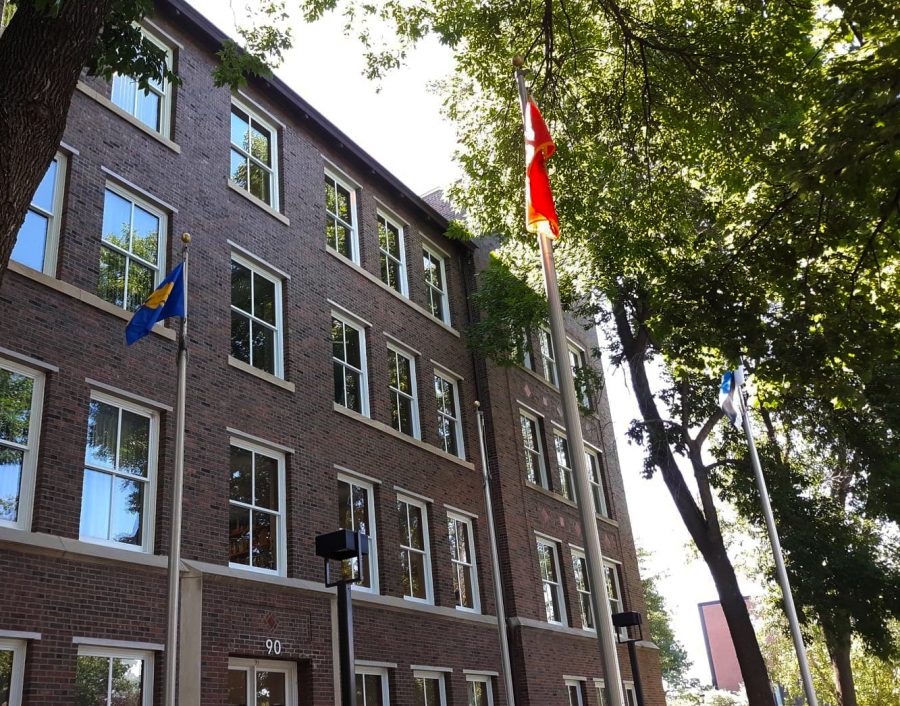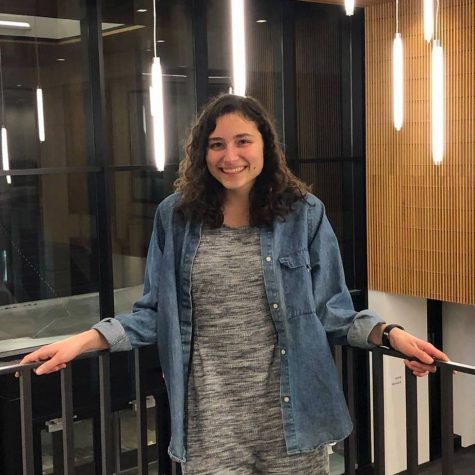ICE visa restrictions rescinded for returning international students
July 17, 2020
On Tuesday, July 14, a federal judge announced that the Trump administration would rescind last week’s ruling that required international students taking online classes to leave the United States.
Instead, the federal government will revert to the guidance issued in March, which allows international students to keep their immigration status while completing online classes. International students can choose whether to remain in the U.S. or take their classes from home; that decision will not affect their visa status.
Eight federal lawsuits had been filed challenging the rule since Immigration and Customs Enforcement (ICE) released it on July 6. Harvard University and the Massachusetts Institute of Technology (MIT) challenged the ruling in a lawsuit that was backed by over 200 other colleges and universities, including Macalester.
Provost and Dean of the Faculty Karine Moe said that this is good news for Macalester, where international students make up around 15 percent of the student body.
“My initial reaction was one of enormous relief that our international students will be able to make their decisions based on what they believe to be best for themselves,” Moe wrote in an email to the Mac Weekly.
Macalester senior staff and International Student Programs (ISP) spent last week planning for how best to protect international students from the fallout of this ruling. In a July 14 email to students, President Suzanne Rivera expressed the college’s relief at the reversal of last week’s decision.
“The legal decision, which followed a national campaign for rescission led by colleges and universities, is a clear example of justice prevailing over a policy that had cruelty at its core,” Rivera wrote.
Like Moe and Rivera, ISP staff were relieved by the news of the reversal. Director of ISP Aaron Colhapp wrote in an email to the Mac Weekly that the staff wasn’t entirely surprised by the decision.
“I think we all felt something would change, but none of us were certain,” Colhapp wrote.
Colhapp wrote that ISP expects further guidance and adjustments as time goes on — more details might be announced in the near future, and some aspects of the rule could be tightened or loosened.
Although this was good news, international students aren’t fully out of the woods yet. Colhapp noted that first years are in a particularly difficult position — since March, embassies and consulates have not been issuing new visas, making it impossible for many new students to get here by the Sept. 2 start date.
On July 14, the Department of State announced that some embassies and consulates would start up again in phases, though this will occur on a post-by-post basis. Several incoming first-years who have been in touch with ISP have had their processing appointments canceled, and some have appointments booked for October or November, which would force them to stay out of the country for at least the full first module.
“Our greatest concern is incoming students,” Colhapp wrote. “Regressing to the spring guidance was not helpful to them.”
That federal guidance from the spring also prohibits first-years from starting college entirely online while living in the U.S.. First-years can start school online from abroad, but without their visas, they won’t have legal student status in the U.S. yet. Moe wrote in her email that Macalester would continue to work with these students to determine the best course of action.
Meanwhile, the reversal of the decision has taken a weight off the shoulders of many returning international students.
Thu Dang ‘22, a student from Vietnam, described how she initially felt in response to the rescinded ICE regulation in an email to the Mac Weekly:
“Unwelcomed. Undervalued. A tool used thoughtlessly by the Trump administration to gain votes for the upcoming election,” Dang wrote.
Dang was grateful for the compassion and understanding that she felt from the Macalester community in the days following the announcement from ICE.
“My professors and friends have been the greatest source of support,” Dang wrote. “They reached out to me as soon as they heard the news and checked on me for the next few days. It was so good just to schedule a call with my professor and have somebody share my frustration.”
Biology professor Mary Heskel has been using her class Instagram account to post live updates about the ICE decision and critique the harm it caused international students.
“This was so disruptive in an incredibly traumatizing summer already,” Heskel said. “It just seemed very cruel. There was no point to it.”
Heskel noted that this decision could have impacted not only the international student community but also the higher education system and academia at large. Heskel has benefitted from opportunities to study and work internationally, and she saw this policy as a threat to that academic internationalism.
“It is very common to have an international community in science, and the people that you work with represent places all over the world,” Heskel said.
For Ahmed Abdalla Ahmed ’23, last week’s ruling also sparked more concerns about what the federal government might change for international students in the future.
“So, they made this one particular decision about this,” Abdalla Ahmed said. “What’s going to happen then — let’s say I want to work here or go to graduate school — [if] there is going to be another law targeting international students and Muslims?”
ISP will continue to monitor the ongoing situation and work with international students to plan for the rest of the year. Right now, they are waiting for further information and guidance.
“In the meantime, we’ll connect with our colleagues across the country, read relevant guidance, opinions, and communicate with the students when we hear something helpful or otherwise,” Colhapp wrote.
The Mac Weekly will continue to report on this story as it develops.
Additional thanks to Mey So ’22 and Maria Haris ‘22, who also spoke to The Mac Weekly for this story.














